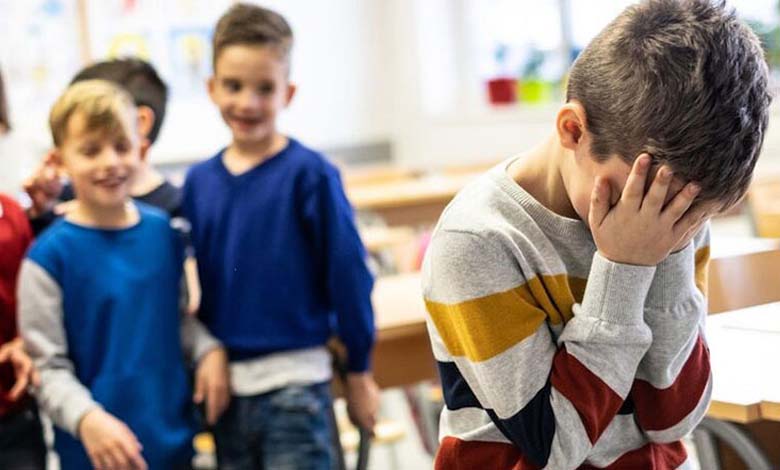The Real Reasons Behind Child Bullying

Despite widespread awareness of the dangers of bullying, many children and adults still engage in this behavior, whether in person, behind others’ backs, or online.
According to psychological experts, understanding why children and adolescents bully others is essential to help stop this behavior, which can cause serious harm to others.
In an article published on the Parents website, several experts highlighted the reasons that might drive children to bully, including:
Power and Authority
People who like to control or exert authority are prone to bullying behavior. This may be because they are not allowed to make any decisions in their own lives, making power during social interactions more appealing.
Some teenagers prefer to interact with others only on their own terms. If things don’t go their way, they might resort to bullying.
Popularity
Sometimes, bullying is a manifestation of social status. Popular children often mock less popular ones by perpetuating aggression in relationships. Popularity can also lead children to spread rumors and gossip, engage in girl-shaming, and ostracize others.
At the same time, children trying to climb the social ladder at school or gain some social power might bully to get attention. They might also bully others to reduce someone else’s social status.
Problems at Home
Experts say that teenagers from broken or abusive families are more likely to bully others.
Children who experience parental absence or leniency might also turn to bullying because it gives them a sense of power and control that is missing in their lives. Children with low self-esteem might bully as a way to cover up their lack of self-worth.
Sibling bullying also leads to school bullying. When an older sibling mocks and harasses their younger sibling, it creates a feeling of helplessness. To regain this sense of power, these children might bully others, sometimes mimicking their older siblings’ behavior.
Boredom, Attention-Seeking, and Fun
Children who are bored at school and looking for entertainment sometimes turn to bullying to add some excitement and drama to their lives. They might also choose bullying because they lack parental attention and supervision. As a result, bullying becomes an outlet for gaining attention.
At the same time, children who lack empathy often enjoy hurting others’ feelings. They not only appreciate the sense of power they get from bullying others, but they might also find harmful “jokes” amusing.
Peer Pressure
Sometimes, children bully others to fit in with a group, even if it means going against their better judgment. These children are often more concerned with fitting in and being accepted than worrying about the consequences of bullying.
-
The child of “Voice Kids” was dropped off in a care home… And the injured man’s mother reveals the details
-
5 “Effective” Ways to Help Your Child Achieve Success
At other times, children might bully simply to go along with the group. Peer pressure is a powerful force. The fear of not being accepted by others or the fear of becoming the next target might drive children to bully within groups.












